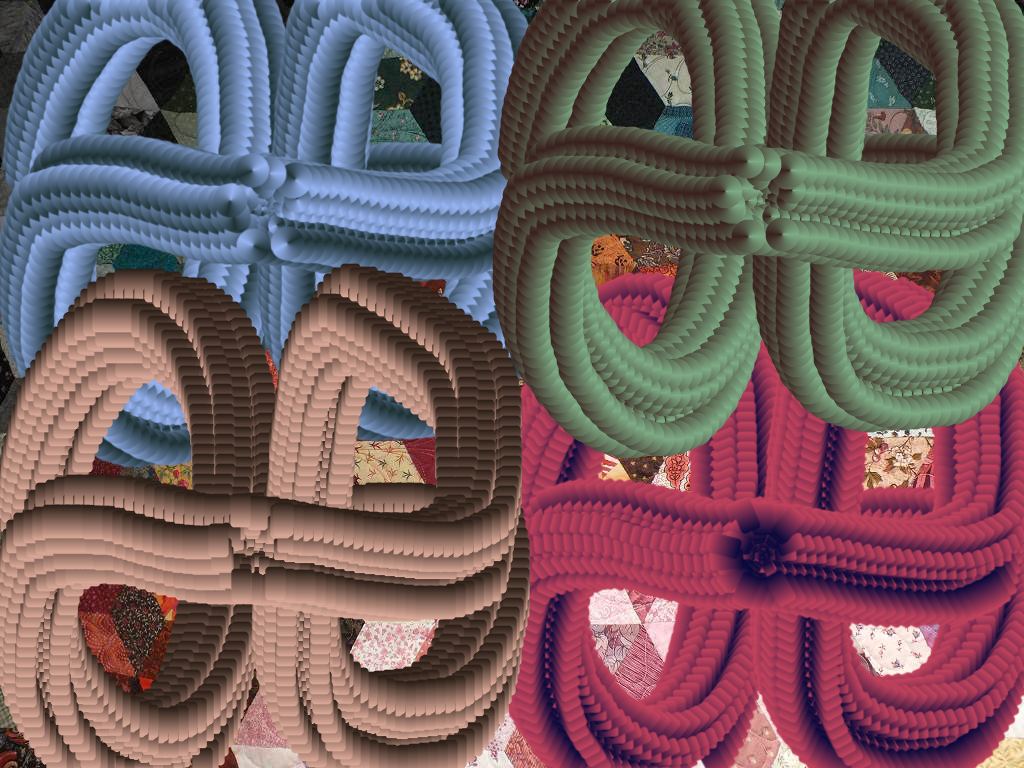This Liquib image illustrates how the Custom Sequons feature might
be used. A single Erupt Tool sequence was applied manually along a
curving, twisting, overlapping path using the Burrow Action. That sequence
was saved as a Custom Sequon, which I named Pretzel. The
source image was Reverted and then the Pretzel Custom Sequon
was applied 4 times. A Tool Sequon (or Custom Sequon) can be
applied at a particular position by clicking the mouse at that position while the CTRL key
is pressed. Sequon Options can often be used to influence the results
of Sequons and Custom Sequons. In this case, the Dual Colors
Erupt Style was set with 4 different chosen color pairs. The Fragment
Shape was set to Round for the upper 2 Pretzels and to Brick
for the lower 2. The Orient Fragments by Angle option was set on for the
upper-left and lower-right Pretzels and off for the other 2. Custom
Sequons can be extremely versatile, and might enable capabilities that would be quite
impractical to perform manually. Of course, once a Custom Sequon has
been defined, it can later be applied on any image at any time.


